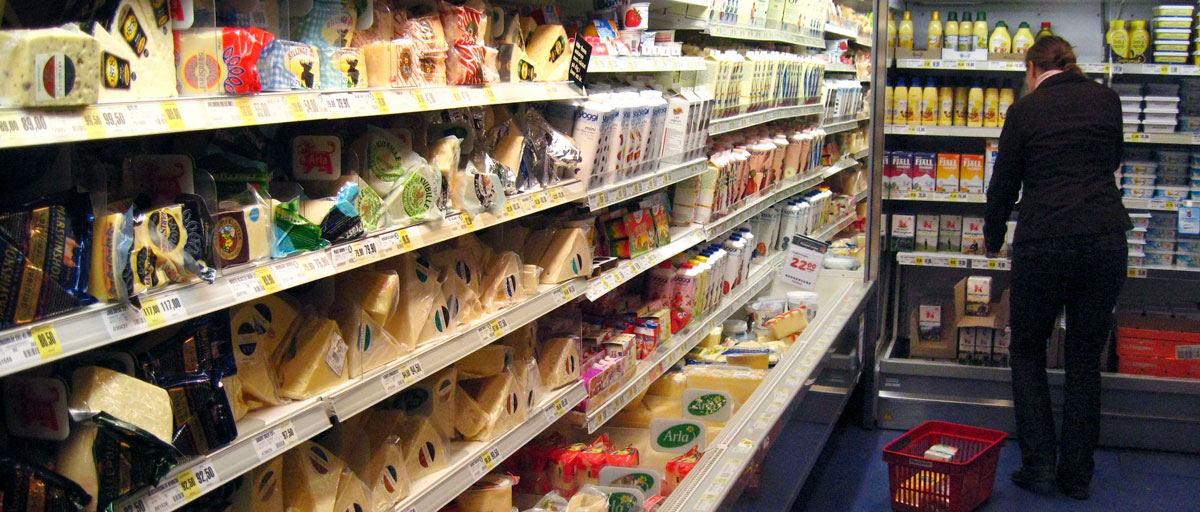Bildtext får vara max två rader text. Hela texten ska högerjusteras om den bara ska innehålla fotobyline! Photo: B. Christensen/Azote
NEW FUNDING
Centre partner in programme designed to improve Swedish food system

The new programme Mistra Food Futures will develop strategies that can transform the Swedish food system by 2045. The programme will also identify indicators that can safeguard desired progress. Photo: J. Lokrantz/Azote
Text
Four-year programme receives SEK 64 million from the Swedish Foundation for Strategic Environmental Research (Mistra)
Stockholm Resilience Centre (SRC) is one of the main partners of a new programme designed to identify steps needed for Swedish food system to be more sustainable and resilient by 2045.
The programme, Mistra Food Futures, is spearheaded by the Swedish University of Agricultural Sciences (SLU) together with the SRC and RISE, Sweden’s research institute and innovation partner.
Over the course of four years, the programme will develop strategies that can transform the food system by 2045, says Helena Hansson, professor at SLU, and one of the PI:s of the proposal: “There is a general consensus that our food production system and consumption must change, however we still need more knowledge on how to achieve this change. That includes identifying both obstacles and opportunities along the way.”
Safeguarding desired progress
Line Gordon, SRC director and co-applicant of the proposal adds: “Our work will stretch beyond Swedish based production and look at all aspects of the food system, including underlying global dynamics.”
Specifically, Mistra Food Futures will develop strategies on how to achieve various targets by 2045, including zero emissions of greenhouse gases from Swedish agriculture. The programme will also identify indicators that can safeguard desired progress.
"This initiative will increase the opportunities for all actors in the food value chain; agriculture, food industry, and retail, to actively and in collaboration with academia continue to work towards a sustainable food system. The programme’s design and the competent team of researchers heading it provide good conditions to succeed,” says Elisabet Rytter, head of research and nutrition, The Swedish food federation.
The programme will engage researchers across a number of disciplines, in addition to various public and private institutions. The aim is to make sure all relevant stakeholders can contribute to the implementation of the desired changes.
“It is exciting to see such a broad constellation of partners and collaborators from science, business, policy and practice coming together to generate actionable knowledge improve the food system at different scales,” says Beatrice Crona, co-applicant and executive director of the Global Dynamics and the Biosphere programme at the Royal Swedish Academy of Sciences.
“The close connection between high quality research and innovation gives hope for real progress towards a sustainable Swedish food system,” says Ulf Sonesson, research and market development strategist, RISE.






